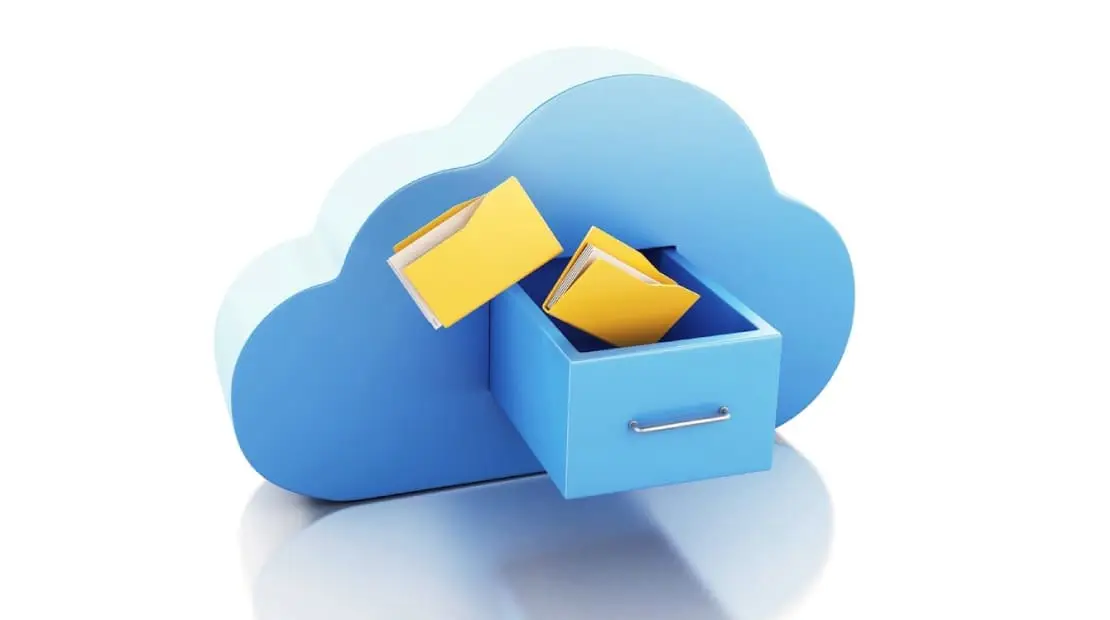
Cloud Storage
What is Cloud Storage Service?
Cloud Computing or Cloud Storage services mean using internet servers for their unlimited storage space to manage, process, and preserve records and data for their entire lifecycle. There are central servers to manage and handle the operations with the use of set and defined protocols. They use software's to ensure seamless connectivity between all the devices liked via cloud computing. Records Management organizations providing their clients with cloud storage services usually maintain multiple data copies to eliminate any risks of security threats, data loss, and data breach, etc.
All the types of documents your organization produces, physical records, back-up tapes, DVD Magnetic tapes, portable disks, hard drives, and other digital media should be in a cloud backup storage.
Why is it required?
Cloud storage is now being widely used as one of the most secure ways for data protection. In the worst possible event, the backups of your data in the cloud storage will help your organization to be back up on its feet within a few hours. The need for cloud storage can be explained well by what it has in store for you.
- Hassle free - Cloud storage offers you, quick and easy access with zero hassles management, from anywhere anytime.
- Audit Trail - Complete access to any and every action taken on your records and data as a full document step by step audit and custody trial.
- Business Streamlining - Cloud storage minimizes the tedious work of physical record management, therefore, increasing efficiency and bring consistency to your work.
- Fully compliant-Online management helps you control the data, rather than the other way round
While dealing with cloud computing, it is very important to understand all the intricacies of the technology. With a complete understanding, the facilities department will be able to work on the design and deployment process. When it comes to cloud computing, the following are just a few of the important topics where data center professionals can really help out.
Data Center Sizing
While designing a cloud solution, you need to know exactly how much rack space is required for all the data and records and how will their design be distributed. This knowledge helps in designing the actual data center, placement of hot /cold aisles, and infrastructure choices. Cloud designers and architects want to work with professional people in the facilities department to understand the design of a cloud solution and apply that to a well laid out data center environment.
Wiring & Cabling
Cloud storage technologies and virtualization is to understand the complete complexity of user density and efficiency. So, the data center should have the same mentality. There are a lot of computing systems that are continuously trying to create server and blade designs that require minimal wiring.
It is important to create solid, logical wiring design with dense environments capable of handling numerous users per rack is something that clouds computing and virtualization require.
Power requirements & HVAC
Building and creating a consolidated cloud storage environment and needs less amount of power but in some cases, this can be the complete opposite. The physical servers consuming power will be removed but the replacements take more power and require more cooling.
While creating a cloud environment, data center engineers need to work closely with the cloud environment designers to have the complete knowledge about many servers are being placed in the rack and what type they will be. Creating an intelligent power and HVAC system can really help a cloud environment’s performance.
First Response Monitoring
First response monitoring is a very large topic to be understood in one go. Facilities department and professionals are the first people to detect and stop major errors however, an excellent first response system will be extremely helpful and many cloud engineers rely on and trust their data center counterparts to be good at.
Identifying and catching server faults, closet, and wiring issues are the most common problem areas which tend to become roadblocks proves to be very invaluable with the first response monitoring. Being proactive -- both within the data center and the cloud -- will speak volumes when it comes to overall infrastructure performance.
Resource Allocation
Resource allocation is the most important part of cloud and virtualization deployment. Apart from RAM and CPU, the other resources of the data center play a huge role. Datacenter space, power, cooling, and other variables need to be considered and measured carefully before any project. The efforts of the cloud architects and facilities professionals need to come together and coordinate their efforts for the ultimate resource allocation. By understanding the groundwork for the cloud environment, engineers are able to deploy the best possible foundation for the infrastructure.




